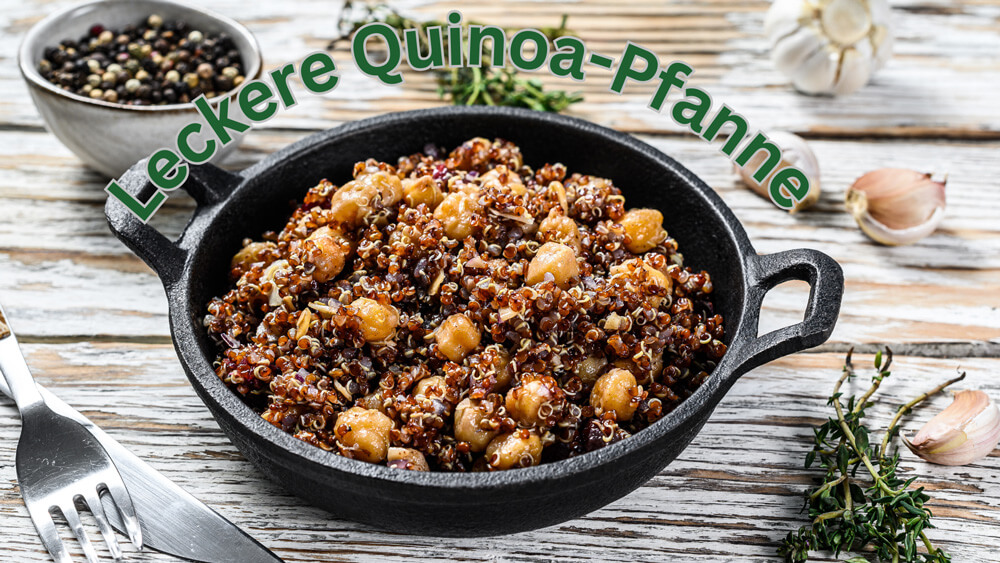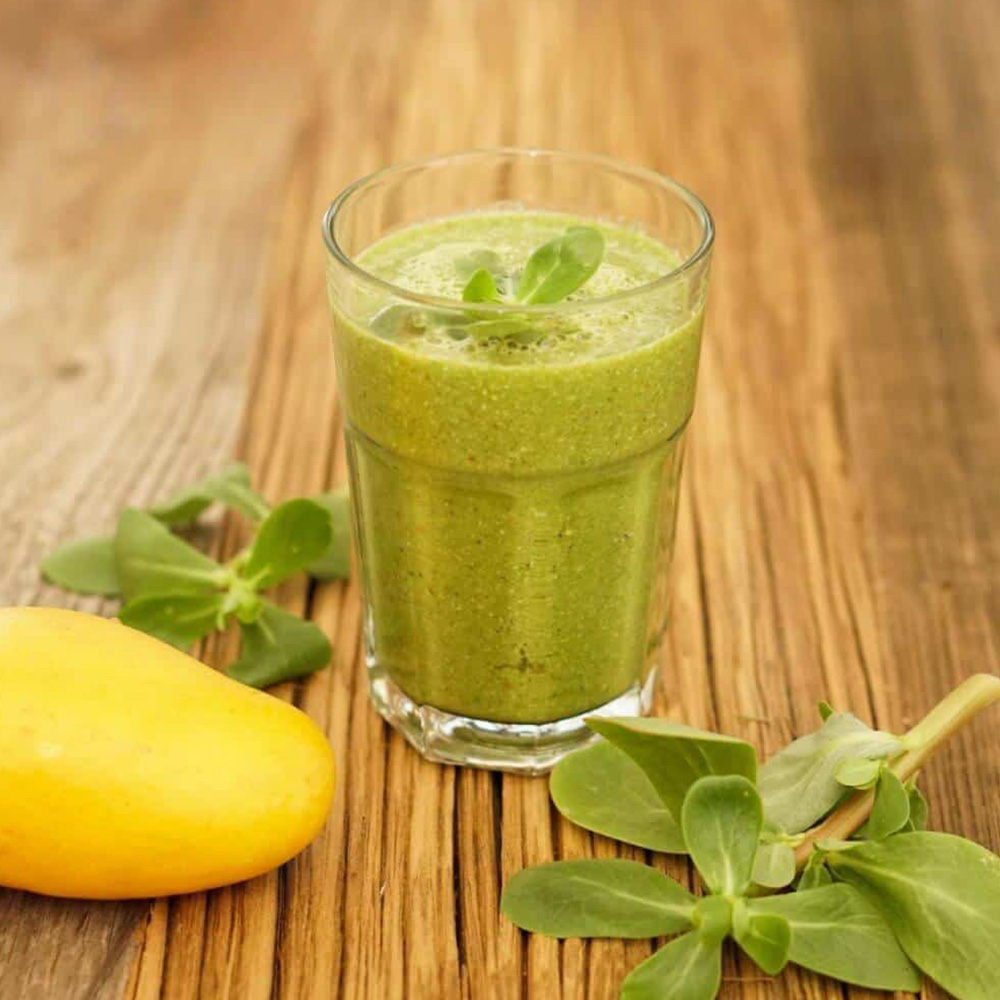Basenfasten – dein umfassender Guide mit 7‑Tage‑Plan
Entdecke Prinzip, Vorteile & Lebensmittelliste
– inklusive kostenlosem 7-Tage-Plan zum Download.
Table of contents
Basenfasten – dein sanfter Weg
zu mehr Energie und Leichtigkeit
Kennst du das Gefühl, wenn sich dein Körper schwer und träge anfühlt, deine Gedanken ständig kreisen und deine Energie irgendwie auf Sparflamme läuft? Vielleicht signalisiert dir dein Körper damit, dass er eine Pause von Gewohnheiten und Säurebildnern braucht, die ihn belasten. Alkaline fasting bietet genau diese sanfte Auszeit – und gibt dir die Chance, deinen inneren Reset-Knopf zu drücken.
Anders als beim klassischen Heilfasten darfst du beim Basenfasten genießen und satt werden – aber eben ausschließlich mit basischen Lebensmitteln, die deinen Körper entlasten und neue Energie freisetzen.
Was ist Basenfasten?
Hast du schon mal bemerkt, dass Stress, Kaffee, Zucker und andere säurebildende Lebensmittel deinem Körper langfristig nicht guttun? Vielleicht fühlst du dich oft aufgebläht, energielos oder einfach nicht ganz in Balance. Alkaline fasting ist genau dafür gemacht, dir eine sanfte Auszeit zu ermöglichen – ohne auf Genuss verzichten zu müssen.
Beim Basenfasten konzentrierst du dich ausschließlich auf Lebensmittel, die basisch wirken und deinen Körper dabei unterstützen, überschüssige Säuren und Stoffwechselabfälle effektiv loszuwerden. So bekommt dein Verdauungssystem eine wohltuende Pause, und dein gesamter Organismus kann sich regenerieren und neu ausrichten.
Basische Ernährung:
Du isst ausschließlich Obst, Gemüse, Kräuter, Sprossen, Mandeln und hochwertige pflanzliche Öle.
Sanfte Entlastung:
Der Körper wird von Säuren und Schlacken befreit, was deine Verdauung spürbar verbessert.
Ohne Hungern:
Anders als beim traditionellen Fasten darfst du dich satt essen – Genuss steht an erster Stelle.
Ganzheitlicher Ansatz:
Du verbindest Ernährung mit moderater Bewegung, Yoga, Entspannungstechniken und unterstützenden Anwendungen wie Basenbädern und Leberwickeln.

Warum das Ganze?
Basenfasten ist also mehr als nur eine kurze Ernährungsumstellung. Es ist eine bewusste Auszeit, ein sanfter Reset, der Körper, Geist und Seele neu harmonisiert. Schon nach wenigen Tagen wirst du spüren, wie sich Müdigkeit und Trägheit in Energie, Klarheit und Vitalität verwandeln.
Bist du bereit, deinem Körper etwas wirklich Gutes zu tun?
Welche Vorteile dir Basenfasten ganz konkret bringt, zeigen wir dir jetzt.
„5 überzeugende Vorteile des Basenfastens
(wissenschaftlich bestätigt)“
Vielleicht fragst du dich jetzt: „Ist Basenfasten wirklich etwas für mich?“. Tatsächlich sprechen viele wissenschaftliche Studien eine klare Sprache – Basenfasten kann deinem Körper und Geist auf beeindruckende Weise guttun. Hier findest du die fünf wichtigsten Vorteile, die von Experten bestätigt wurden und dir deutlich zeigen, warum es sich lohnt, diesen sanften Detox-Weg auszuprobieren.
1. Sanfte Verdauungs-Entlastung
Studien zeigen, dass Basenfasten effektiv Blähungen, Völlegefühl und andere Verdauungsbeschwerden reduzieren kann. Dein Darm bekommt eine wertvolle Erholungspause – und das merkst du schnell!
2. Stabile Säure-Basen-Balance
Forschungen der TU München bestätigen, dass Basenfasten den Säure-Basen-Haushalt innerhalb weniger Tage positiv beeinflussen kann. Das Ergebnis: weniger Müdigkeit, mehr Energie.
3. Gesunde Gewichtsregulation
Laut Studien der Charité Berlin kannst du während einer 7- bis 10-tägigen Basenfasten-Kur nachhaltig an Gewicht verlieren – ganz ohne Muskelabbau, dafür mit spürbar gesteigertem Wohlbefinden.
4. Entzündungen werden reduziert
Wissenschaftliche Untersuchungen der Universität Graz haben gezeigt, dass Basenfasten entzündungsfördernde Prozesse im Körper effektiv reduzieren kann, was dir langfristig zu besserer Gesundheit verhilft.
5. Bessere Schlafqualität & mehr Energie im Alltag
76 % aller Teilnehmer einer großen Umfrage berichteten über besseren Schlaf, klarere Gedanken und deutlich gesteigerte Energie nach wenigen Tagen Basenfasten. Stell dir vor, jeden Morgen voller Power aufzuwachen!
Vielleicht fragst du dich jetzt: „Ist Basenfasten wirklich etwas für mich?“. Tatsächlich sprechen viele wissenschaftliche Studien eine klare Sprache – Basenfasten kann deinem Körper und Geist auf beeindruckende Weise guttun. Hier findest du die fünf wichtigsten Vorteile, die von Experten bestätigt wurden und dir deutlich zeigen, warum es sich lohnt, diesen sanften Detox-Weg auszuprobieren.
„Diese Lebensmittel sind beim Basenfasten erlaubt (und diese solltest du meiden)
✅ Basische Lebensmittel (gönn dir reichlich davon!)
Gemüse & Salate: Brokkoli, Spinat, Zucchini, Möhren, Gurke, Fenchel, Kohlrabi, Kartoffeln
Obst: Äpfel, Beeren, Birnen, Bananen, Zitrusfrüchte, Melonen, Mangos
Kräuter & Gewürze: Petersilie, Basilikum, Rosmarin, Dill, Koriander, Kurkuma, Ingwer
Samen & Nüsse: Mandeln, Walnüsse, Kürbiskerne, Sonnenblumenkerne
Sprossen & Keimlinge: Kichererbsen, Linsen, Mungobohnen
Hochwertige Öle: Olivenöl, Leinöl, Kokosöl, Avocadoöl
❌ Säurebildende Lebensmittel (während deiner Basenfasten-Zeit meiden)
Tierische Produkte: Fleisch, Fisch, Eier, Käse, Quark, Joghurt
Weißmehl & Zucker: Brot, Nudeln, Gebäck, Süßigkeiten, Fertiggerichte
Kaffee & schwarzer Tee: ersetzen durch basische Kräutertees oder Lupinenkaffee
Softdrinks & Alkohol: stattdessen stilles Wasser, Kräutertees oder Infused Water
Gehärtete Fette: Margarine, frittiertes Essen, Fertigsnacks
Kleiner Tipp für mehr Genuss:
Würze deine Gerichte mit frischen Kräutern, Zitrone und milden Gewürzen. So sorgst du nicht nur für basischen Genuss, sondern tust deinem Körper gleichzeitig etwas richtig Gutes.
„Dein 7-Tage-Basenfasten-Plan (einfach & übersichtlich)
Eine Woche Basenfasten klingt vielleicht nach einer Herausforderung – dabei ist es ganz einfach, wenn du eine klare Struktur hast. Mit unserem bewährten Wochenplan kannst du jeden Tag genau nachsehen, was auf deinem Speiseplan steht, welche Übungen deinen Körper unterstützen und wie du dir bewusst kleine Wohlfühlmomente schaffst.
Das Schöne: Du brauchst dir keine Gedanken zu machen – folge einfach unserem Plan, genieße die Woche, und erlebe Schritt für Schritt mehr Leichtigkeit und Energie.

Kurzüberblick deiner basischen Woche (vereinfachte Tagesstruktur):
| Tageszeit | Aktivitäten & Mahlzeiten |
|---|---|
| Morgens | Warmes Zitronenwasser · Yoga-Session oder sanfte Bewegung · Basisches Frühstück (z.B. Hirse-Bowl, Smoothie oder Chiapudding) |
| Vormittags | Entspannende Aktivität wie Spaziergang, Lesen oder Meditation |
| Mittags | Basisches Mittagessen (z.B. Quinoa-Gemüsepfanne, Süßkartoffelsalat, gedünstetes Gemüse mit frischen Kräutern) |
| Nachmittags | Kräutertee-Pause · optional Leberwickel oder Basenfußbad zur Unterstützung |
| Abends | Leichtes Basen-Dinner (z.B. Gemüsesuppen, Ofengemüse, Salate) · kurze Entspannungseinheit |
Das erwartet dich ganz konkret (Beispieltag):
Tag 1 – entspannt starten
Morgens: Warmes Zitronenwasser, 30 Minuten sanftes Yoga oder Dehnen, danach basische Hirse-Bowl mit frischen Äpfeln und Zimt.
Mittags: Quinoa-Pfanne mit knackigem Gemüse und frischen Kräutern, dazu ein frischer grüner Salat.
Nachmittags: Kräutertee und eine kurze Entspannungseinheit (z.B. Atemübung oder Meditation).
Abends: Cremige Kürbissuppe mit Kokosmilch und Ingwer, anschließend gemütlicher Tagesausklang mit einem Buch oder in der Sauna.
Kostenloser Download für deinen Wochenplan:
✅ 7-Tage-Basenfasten-Plan als PDF Einfach herunterladen, ausdrucken und direkt loslegen!
In unserem FAQ beantworten wir häufig gestellte Fragen rund ums Basenfasten!
Häufige Fragen rund ums Basenfasten (FAQ)
Wie starte ich am besten mit dem Basenfasten?
Am besten planst du eine kurze Vorbereitungszeit von 2–3 Tagen ein, in der du bereits Kaffee, Zucker und andere säurebildende Lebensmittel schrittweise reduzierst. Besorge dir frisches Obst und Gemüse, gute Öle und basische Kräutertees – dann kannst du entspannt beginnen!
Darf ich während des Basenfastens Kaffee trinken?
Während des Basenfastens solltest du Kaffee und schwarzen Tee meiden, da sie stark säurebildend wirken. Gute Alternativen sind basische Kräutertees, Lupinenkaffee oder einfach warmes Wasser mit Zitrone.
Wie viel Gewicht kann ich beim Basenfasten verlieren?
Basenfasten ist kein klassisches Abnehmprogramm, aber viele Teilnehmer verlieren erfahrungsgemäß innerhalb von 7–10 Tagen etwa 1–3 Kilogramm – ganz ohne Hunger oder Verzicht.
Kann ich während des Basenfastens Sport treiben?
Ja, unbedingt! Leichte bis moderate Bewegung wie Yoga, Spaziergänge oder sanftes Radfahren unterstützen sogar den Detox-Prozess und verbessern dein Wohlbefinden zusätzlich.
Ist Basenfasten auch für Diabetiker oder Allergiker geeignet?
Grundsätzlich ja – allerdings empfehlen wir dir, bei bestehenden Erkrankungen wie Diabetes oder starken Allergien zuvor mit deinem Arzt Rücksprache zu halten. So kannst du sicherstellen, dass Basenfasten optimal zu dir passt.
Bereit, das gute Gefühl des Basenfastens jetzt selbst zu erleben? Im nächsten Abschnitt erfährst du, wie du mit uns dein persönliches Retreat erleben kannst!
Du hast jetzt viel über Basenfasten erfahren – von den Vorteilen über erlaubte Lebensmittel bis hin zu deinem 7-Tage-Plan. Vielleicht spürst du jetzt bereits die Neugier und das Kribbeln, diese Erfahrung selbst zu machen.
Stell dir vor: Ein idyllischer Ort mitten im Erzgebirge, tägliche Yoga-Einheiten, basische Gourmetküche und tiefe Entspannung im Spa – genau das wartet auf dich bei unserem Basenfasten-Retreat im Landhotel Altes Zollhaus.
Hier findest du nicht nur eine kurze Auszeit vom Alltag, sondern auch die Möglichkeit, echte Veränderungen in deinem Leben anzustoßen. Starte jetzt in eine Woche voller neuer Energie und Klarheit, die weit über die Fastenzeit hinaus spürbar bleibt.
Was dich erwartet
🍽️ Basische Genussküche (frisch, regional & basisch nach Wacker)
🧘 Tägliche Yoga- & Bewegungseinheiten für mehr Wohlbefinden
🛀 Wellness & Entspannung im großzügigen Spa-Bereich
🌳 Natur pur – mitten in der Waldlichtung entspannen
Detaillierte Informationen rund um die Angebote im alten Zollhaus
Breakfast
The alkaline muesli according to Wacker®, possibly a glass of freshly squeezed fruit and/or vegetable juice, a glass of smoothie.
In between meals We recommend avoiding snacks between meals. Especially if you want to lose a few pounds. It is more favourable for your metabolism if you take a 4-5 hour break between meals. In an emergency, however, they can help you deal with cravings. However, before you reach for an alkaline snack, pause for a moment: drink something first, e.g. a sip of water or some herbal tea. This usually calms the stomach first and
You can wait another hour or two until you eat something.
Lunch
An alkaline starter and a warm alkaline vegetable dish.
Dinner
A vegetable soup and a warm alkaline vegetable dish.
Drinks Drink 2.5 to 3 litres of spring water, still water or
highly diluted herbal teas. Rhythm Please make sure you eat your meals at the same time every day.
To ensure that your alkaline fasting cure is a feel-good experience for you right from the start, we recommend the following three days before the start of your alkaline fasting cure
to make preparations:
- Do not drink coffee, black tea, green tea or mate tea
- Do not consume other caffeinated foods such as cola
- Do not drink alcohol
- Do not smoke if possible
- Bring an irrigator for bowel cleansing
You can also purchase accessories for your bowel cleansing (irrigator) from us. If your diet is very high in protein and/or carbohydrates, we also recommend that you increase the amount of fruit and vegetables you eat in the three days before your alkaline fasting programme. This will make the changeover easier for you and you will feel full more quickly during your alkaline fasting programme.
These are merely recommendations to make your alkaline fasting cure as pleasant as possible from day one and to prevent you from suffering from "withdrawal symptoms" in the first few days of your alkaline fasting cure. If it is not possible for you to prepare yourself three days before the start of the alkaline fasting cure Of course it is also possible to arrive without preparation.
If you would like to motivate and prepare for your alkaline fasting cure at home, we recommend the following readings:
- alkaline fasting - the wacker method®, ISBN: 9783830439530
Sabine Wacker, Dr Andreas Wacker
- alkaline fasting - the great cookbook, ISBN: 9783830436850
Sabine Wacker
Do you have any questions about the preparation or the course of your alkaline fasting cure in
our house? As alkaline fasting Guest Manager, my team and I are at your disposal.
will be happy to answer any questions you may have.
We wish you a pleasant journey and look forward to welcoming you at your
individual alkaline fasting cure.
Suitability An alkaline fasting cure can be used for diabetes mellitus, both type I
as well as type II, but there are certain prerequisites for this. As a diabetic you should
- are cared for in a specialised diabetology practice
- have completed individual counselling and group training sessions with a qualified diabetes counsellor and attend them regularly
- Check your blood glucose level regularly Under these conditions, you can adjust your insulin requirements or the need for oral antidiabetic drugs to your diet.
Experience with alkaline fasting - the wacker-method® has shown that the insulin dose or the need for oral antidiabetic drugs must be reduced in the first few days in the case of insulin-dependent diabetes mellitus, both type I and type II. This is particularly true if you, as a diabetic, complete a daily exercise programme during the alkaline fasting cure and do not usually do this so intensively in everyday life. Exercise has been proven to lower blood sugar levels and experience has shown that a 100% alkaline diet also lowers them.
What is that? Fructose intolerance is accompanied by various symptoms. If you experience increased intestinal problems such as pain, bloating, nausea or diarrhoea after eating fruit and vegetable dishes, you may have fructose intolerance.
you may have a fructose intolerance. This means that you cannot digest the fructose contained in many types of fruit and vegetables well. Fructose intolerance is not a lifelong condition, but occurs in conjunction with other food intolerances and can be positively influenced by changing your diet.
Caution Even though fructose is called fruit sugar, it is not only found in fruit. It is also found in household sugar, diabetic products, honey, mayonnaise, ketchup, ready-made sauces, bread, cola, soft drinks, fruit juices, wine, beer and many other products.
Tip If you are fructose intolerant, you do not have to give up fruit and vegetables. Fructose intolerance is a disordered transport of fructose from the intestine into the blood. The good news is that this transport can be taken over by glucose (dextrose). This means that if a food that contains fructose also contains sufficient glucose, the glucose takes care of the transport.
transport of fructose and generally makes the food more digestible. So if a food contains the same amount or more glucose than fructose, you can assume that it is more tolerable for you.
Further information
Source Significance of the ratio of glucose to fructose
Here is the link
Fruit the following fruit has the optimum glucose-fructose ratio,
so that it is generally also tolerated by fructose intolerant people.
becomes:
- Apple, dried only
- Apricot
- Apricot, dried
- Banana
- Date
- Fig
- Fig, dried
- Grapefruit
- Honeydew melon
- Jackfruit
- Currant, white
- Prickly pear
- Cherry, sour
- Cherry, sweet
- Lime
- Lychee
- Tangerine
- Mirabelle plum
- Papaya
- Passion fruit (passion fruit)
- Plum, fresh
- Cranberry
- Quince
- Reneclaude
- Rhubarb
- Sultana
- Starfruit
- Grape
- Lemon
Vegetables following vegetables has the optimum glucose-fructose ratio,
so that it is generally also tolerated by fructose intolerant people:
- Aubergine
- Leaf parsley
- Cauliflower
- Chicory
- Chinese cabbage
- Peas, fresh
- Lamb's lettuce
- Fennel
- Cucumbers
- Potato
- Kohlrabi
- Pumpkin
- Carrot
- Sweet pepper, green
- Chanterelle
- Radish
- Radish
- Beetroot
- Red cabbage
- Spinach
- Porcini mushroom
- Sweet potato
- Jerusalem artichoke
- Onion
- White beetroot
- White cabbage
These are NOT tolerated
Pineapple, apple, avocado, pear, celery, nettle, broccoli, blackberry, endive, mushroom, pomegranate, kale, blueberry, raspberry, medlar, red and blackcurrant, persimmon, kiwi, lettuce, leek, okra, orange,
Parsnip, parsley root, peach, dried plum, purslane, runner bean, gooseberry, rutabaga, tomato, watermelon.
Causes
Digestion Histamine is a substance produced naturally in the body that is also contained in many foods. Histamine can cause allergy-like symptoms, but can also lead to stomach and intestinal disorders, headaches and circulatory problems.
lead to histamine allergies. Normally, the histamine found in food is broken down by a specific enzyme - diamine oxidase (DAO). If the digestive system and therefore also the intestinal mucosa are not functioning properly, this enzyme is inhibited and histamine cannot be broken down. This leads to a vicious circle in the gut and puts a strain on the immune system.
Fermentation Histamine is not only supplied by food, but is also produced in the intestine through fermentation processes. Fermentation processes always occur where food is not chewed and digested well. The amine content of foods varies greatly and is based on the following processes in food production: fermentation, ripening and long storage. Almost all "matured" foods contain high levels of histamine. Important: Fish should be eaten really fresh, as the histamine content increases with each day of storage. Most histamine-containing foods are acid formers.
Drugs Another possible cause is certain drugs that inhibit or block the enzyme that breaks down histamine.
Foods that contain histamine
Acid formers The following foods contain particularly high levels of histamine:
- Alcohol, especially old wines and red wines, champagne
- Cheese, especially mature cheeses, hard cheeses such as Emmental
and Parmesan, blue cheese, also old Gouda, overripe cheese
Camembert, raw milk cheese
- Chocolate
- Smoked and cured meats, such as salami and ham
- Pork
- Tomato ketchup
- Red wine vinegar
- Spoilt food
Alkaliser
Only a few alkaline foods contain histamine. These include: Aubergines, avocados, strawberries, sauerkraut, spinach and tomatoes. Experience An intolerance always depends on the quantity of the intolerant food. Most histamine-containing foods are acid formers and are therefore not on the menu during an alkaline fasting programme. This reduces the total intake of histamine enormously during an alkaline fasting programme. Experience has shown that small amounts of tomatoes, spinach or other alkaline foods containing histamine are tolerated.
There is usually a simultaneous intolerance to milk sugar (lactose) and/or fruit sugar (fructose). An alkaline fasting cure relieves the organism if there are several intolerances
as it is completely lactose-free and low in histamine. This means that if you are also fructose intolerant, foods containing fructose are often better tolerated during an alkaline fasting programme.
Your alkaline fasting cure includes a well-determined selection of treatments
included:
- A relaxation programme (liver wrap or massage) every two days
- An alkaline bath every three days (as a foot bath or in a bathtub)
You will find the exact applications in the services in your offer.
We have deliberately made sure that your alkaline fasting cure does not include too much of a programme. If you feel fit during the alkaline fasting cure, you can go on longer hikes or even day trips in the region. Ask us about alkaline Packed lunches.
What is that?
Alkaline fasting is not a therapy, but a temporary form of nutrition that we have developed to make it easier for people to switch to a permanently healthy, alkaline-rich and vital substance-rich diet. Nevertheless, in the more than 18 years that we have been helping people with alkaline fasting, we have observed countless positive effects on their health. Diet obviously makes a decisive contribution to health. Weight loss during alkaline fasting - 1 to 4 kilos per week - is more of a side effect, albeit an important one for many people. Here are just a few of the many success stories.
Pollen allergies
Pollen A young woman went on an alkaline fasting programme during the pollen season to shed a few pounds. At the end of the week, she was surprised to realise that the already
hay fever symptoms had disappeared. On closer questioning, she told us that she had suffered from allergies since the age of 5. It started with allergies to cat hair and house dust mites. At the age of 6, an allergy test revealed that she was allergic to poplars and various grasses in addition to cat dander and house dust mites. As a result, desensitisation was carried out, which over time led to an improvement in the cat hair and house dust mite allergy. However, the pollen allergy continued to be associated with the following
Symptoms are very pronounced: Itchy eyes and watery eyes, itching in the external auditory canal, itching in the throat, sneezing and swollen nasal and pharyngeal mucous membranes. Bronchial complaints in the form of breathlessness also became increasingly frequent.
After the hay fever symptoms had already stopped after one week of alkaline fasting, she extended her alkaline fasting for a further two weeks and remained symptom-free.
Sinus infections and pollen allergies
Sinuses A 50-year-old woman had suffered from hay fever since the age of 19. She was diagnosed with an allergy to wheat and various other grasses. Her season always began at the end of April and continued throughout the summer.
The symptoms became more pronounced from year to year: itchy eyes, sneezing, runny nose and extreme tiredness. In recent years, she has also had more sinus infections in winter, her nose was constantly blocked and her ear canals were also affected. During such an acute sinus infection, she took part in an alkaline fasting programme. At the same time, she carried out several bowel irrigations, changed her diet after 2 weeks of alkaline fasting to largely follow the 80:20 rule and was delighted that the following pollen season went very smoothly for her. The following autumn she took part in another alkaline fasting cure and reported that many of her other symptoms such as tiredness and constipation had disappeared and that she had maintained her weight - 6 kg less - well. Six months later - in spring and autumn - she took part in another alkaline fasting cure and was delighted to report that the entire season was without any hay fever symptoms. Her digestion was also good and she felt fit. Since then, she has been doing an alkaline fasting programme once a year. After the alkaline fasting programme, she eats lots of fruit and vegetables and walks
Susceptibility to infection
Infections A patient (38 years old) had had hay fever for 26 years, genital warts for 10 years and a house dust mite allergy for 5 years. In the past 2 years
chronic sinusitis and fatigue were added to this. He complained about his susceptibility to infections, which had reached such proportions that he was barely free of infections for a whole week. He had already tried various naturopathic therapies - so far without success. Detoxification therapy with naturopathic medication
brought him initial relief. After a week of alkaline fasting with a few bowel irrigations, he was amazed to realise that he felt fit and efficient again. He has not had an infection since. After the alkaline fasting cure, he ate strictly according to the 80:20 rule and as a side effect lost 8 kg in a total of 4 weeks - he was very happy about this "side effect". This motivated him so much that he continues to eat this way even though he is constantly travelling for work.
Migraine and acne
Migraine A woman wanted to try alkaline fasting to lose a few kilos. During the first few days of alkaline fasting she had severe headaches, which we initially attributed to the caffeine withdrawal. The headache lasted longer and turned into a migraine - something she had suffered from for many years, as she later told us. At the end of the alkaline fasting week, she felt much better and promised to make her diet more alkaline. A few weeks later, she reported that her migraines now only rarely flare up slightly and that the longer she eats an alkaline-rich diet, the better she feels.
Premenstrual syndrome (PMS)
PMS This success story makes it clear that hormonal processes in the body can depend significantly on a balanced acid-alkaline balance. A 34-year-old woman, who had always suffered from massive congestion and breast tenderness before her period for the past 20 years, reported that her premenstrual symptoms were almost non-existent in the weeks following an alkaline fasting programme.
She actually did the alkaline fasting programme because she suffered from constipation and wanted to lose a few pounds. She decided to do 1-2 weeks of alkaline fasting and
did some colonic irrigations to accompany this. After a week of alkaline fasting, she was delighted to report that she had just experienced a first: For the first time in 20
years she had a pain-free period. Over the past 20 years, she has needed bras in two different sizes: one size for the period up to
ovulation and one size larger for the time until the onset of menstruation. The breast was then so tense that it could not be touched. She could hardly believe that this had simply disappeared as a side effect of the alkaline fasting cure, so to speak. This of course motivated her to change her diet and always make sure that her daily food contains enough alkalising agents.
Overweight and high blood pressure
Overweight A 40-year-old woman had been suffering from obesity, high blood pressure and migraines for 10 years. She did an alkaline fasting programme and was so enthusiastic that she did 6 weeks of alkaline fasting. The result convinced her: she lost 9 kg and
Her migraines have disappeared since then. Her blood pressure has also been significantly reduced. After 6 weeks of alkaline fasting, she said: "I feel much better with alkaline food!"
Overweight and dizzy spells
Overweight A 29-year-old woman underwent an alkaline fasting cure because she had gained 20 kg over the past two years and had not had the slightest success with any diet. She was 30kg overweight in total and had been persuaded to go on a protein diet years ago, during which she initially lost weight. Later, she mainly ate animal protein, especially a lot of meat, but kept putting on weight until she was finally 30kg overweight.
She also complained of constant attacks of dizziness, the cause of which was never discovered. At first she was not convinced by the idea of alkaline fasting as she had already tried so many cures and diets without success. However, three days later she started the alkaline fasting programme. After a week she had lost 4kg on the scales
and after a further week 5 kg less. She continued alkaline fasting for a further 8 weeks and has now lost 14.5 kg. She feels well and fit again,
She hasn't had any more dizzy spells since then.
Why? Alkaline baths, as offered in your alkaline fasting hotel, are a wonderful support for every alkaline fasting cure. Alkaline baths stimulate deacidification via the skin, nourish the skin and it also feels velvety soft after the alkaline bath. An alkaline foot bath also promotes optimal deacidification and often has an even more intensive effect.
Apart from the very relaxing effect of an alkaline bath, the deacidifying effect should not be underestimated. It may well be that an alkaline footbath "revitalises" old aches and pains for a short time. For example, if you suffer from migraines, you may experience a brief headache after an alkaline bath. There are no known side effects of this kind with alkaline full baths. If you are generally healthy, the relaxing effect will predominate.
How often? During a seven-day alkaline fasting programme, we recommend two to three alkaline foot baths or full baths. You can also take an alkalising bath once or twice a week at home. Instructions For an alkaline full bath, approx. 150 g of alkaline bath powder
added. You need approx. 30 g of alkaline bath powder for an alkaline foot bath. The optimum duration of an alkaline bath is 20 to 30 minutes. Make sure you do not stay longer than 30
minutes in the alkaline bath if your circulation tends to fluctuate.
If your circulation is stable, you are welcome to stay in a little longer and run warm water again. It is important that you snuggle up in your bathrobe after the alkaline bath without drying off and do not apply any cream.
Our most important detoxification organ - the liver Detoxification The liver is one of our most important detoxification organs. It performs a large part of the cleansing processes in our body, filtering harmful substances from the blood and rendering them harmless. However, it can only fulfil its tasks for as long as it is not
toxins in the form of an incorrect, particularly high-fat diet and too much alcohol. Otherwise, the liver's ability to fulfil its vital functions decreases.
and health problems can be the possible consequence. Changing your diet during the alkaline fasting week to 100% alkaline food
is an additional challenge for the liver during this detoxification period. A simple and natural means of supporting the liver in this process is the liver compress, which is also very beneficial regardless of the alkaline fasting period.
Liver wrap activates detoxificationActivation During the alkaline fasting cure, the liver is activated to increasingly empty its fat deposits, thereby improving its performance. In connection with this, the liver - especially at the beginning of the alkaline fasting cure - is initially challenged more than before, the tissue undergoes a thorough cleansing process and the entire digestion is slowly reorganised during the first few days. With each subsequent alkaline fasting day, however, fewer harmful and toxic substances need to be neutralised - and the liver can regenerate. The liver wrap has an additional supportive effect here.
Detoxifying the liver with liver compresses Why? Liver wraps are not only excellent for improving blood circulation in the liver, they are also an ideal way to detoxify the liver.
support with detoxification. By stimulating the associated skin, it optimises the blood circulation of the organ and thus has a supportive effect on its detoxification.
detoxification function. As a result, the entire metabolism is stimulated. It activates and strengthens the performance of the liver.
A correctly applied liver compress can also prevent intestinal cramps and be an effective measure against constipation and diarrhoea. The liver compress is therefore not only an extremely important, but also a natural and tried-and-tested aid for the treatment of constipation and diarrhoea.
The optimum time to use the liver wrap during the alkaline fasting cure is during the resting phase before or after lunch and in the evening before going to sleep.
Application The actual application of the liver compress is very simple. All you need is a hot water bottle and one or two linen sheets or towels. The hot water bottle is filled flat with hot water. Excess air is removed before the
Press out the seal. A linen or hand towel is moistened and the hot water bottle is wrapped in it. While you are lying on your back, the hot water bottle is pressed into the cloth.
Wrap a hot water bottle and place it on the upper region of the abdomen below the right ribcage. Cover yourself with a dry towel and a woollen blanket. You can now relax in this position for 20 to 30 minutes.
As an alternative to a hot water bottle, a hot hay bag the size of a hot water bottle can be used. Also note the temperature The feet should not be forgotten at this point: they should be kept as warm as possible. If necessary, a second hot water bottle can be placed under the feet.
It is also important to ensure that the temperature of the liver compress is not too hot, as this will leave red marks on the skin. Miscellaneous Liver compresses should not be used during menstruation as this can increase bleeding. Liver compresses should also only be used to a limited extent for certain inflammations of the gastrointestinal tract. Here
a doctor should be on hand to advise you. It is also advisable to use liver compresses regularly outside of the cure in order to continue to support the metabolic function of the liver. The liver compress also has such a pleasantly relaxing effect that it can help you sleep better in the evening.
KK ProVita supports healthy nutrition
"Your food should be your remedy, and your remedy should be your food." This recognised
as early as Hippocrates. BKK ProVita is the first health insurance company to promote a plant-based diet, as a wholesome plant-based diet can prevent many of the so-called widespread diseases (e.g. diabetes mellitus, high blood pressure, heart attacks and strokes).
BKK ProVita reimburses its insured persons up to €200 per person for active participation in the alkaline fasting week according to Wacker! The alkaline fasting week is subsidised via the nutrition bonus programme as an earmarked bonus.
It's that simple
Anyone insured with BKK ProVita can take advantage of this offer. You do not need to submit an application or a medical certificate of medical necessity. To receive the subsidy via the nutrition bonus programme, submit the invoice for the alkaline fasting week to us at the end of the respective year together with your nutrition bonus pass. Your subsidy will be between €80 and €200 depending on the bonus level you have reached.
Alkaline fasting at the Landhotel altes Zollhaus
Current offers in the
Alkaline fasting
5 days alkaline fasting
Offer valid for the whole year depending on available dates
7 days alkaline fasting
Offer valid for the whole year depending on available dates
10 days alkaline fasting
Offer valid for the whole year depending on available dates
Basenfasten Spezial-04.01.-11.01.2026
From 04.01.-11.01.2026
Digital detox weekend at the Zollhaus – time for yourself. No screens. Just nature.
From 9 January to 11 January 2026
Holistic health with alkaline fasting and yoga: body, mind and soul in balance
Vom 11.01. - 16.01.2026
Erlebnisfasten im Zollhaus – achtsam wandern und bewusst zur Ruhe kommen
Vom 18.01. - 24.01.2026
Basenfasten Spezial-01.03.-08.03.2026
From 01.03.-08.03.26
Digital detox weekend at the Zollhaus – time for yourself. No screens. Just nature.
Vom 06.03. - 08.03.2026
Holistic health with alkaline fasting and yoga: body, mind and soul in balance
Vom 08.03. - 13.03.2026
Holistic health with alkaline fasting and yoga: body, mind and soul in balance
Vom 15.03. - 20.03.2026
Basenfasten Spezial-22.03.-29.03.2026
From 22.03.-29.03.2026








